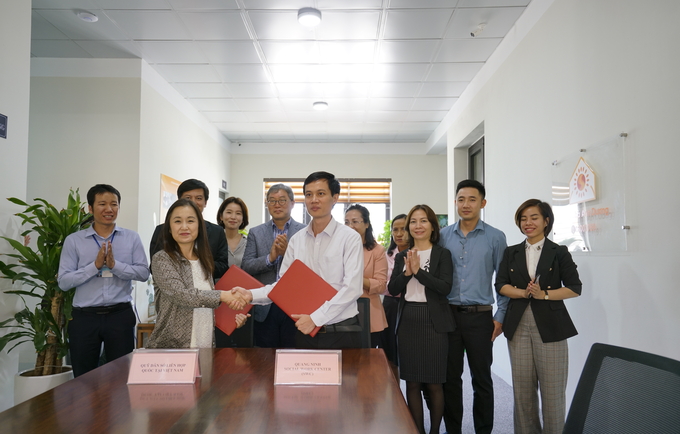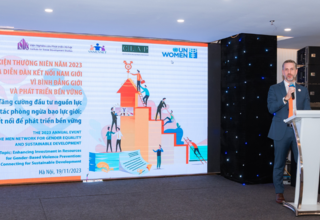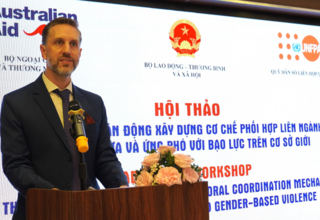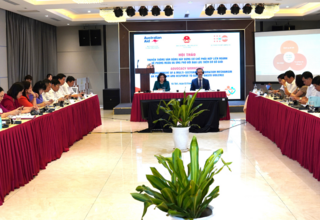An official visit led by the representatives from the Ministry of Labour, Invalids and Social Affairs (MOLISA) and the United Nations Population Fund (UNFPA) and the Korea International Cooperation Agency (KOICA) to “Anh Duong” (Sunshine) House - a shelter of supporting essential services to survivors of violence against women and girls was made this morning, 22/10/2020 in Quang Ninh province. The delegation was chaired by Mr. Le Khanh Luong, Vice Director & Officer-In-Charge of Gender Equality Department, MOLISA; Ms. Naomi Kitahara, UNFPA Representative; and Mr. Cho Han-Deog, Country Director of KOICA Viet Nam.
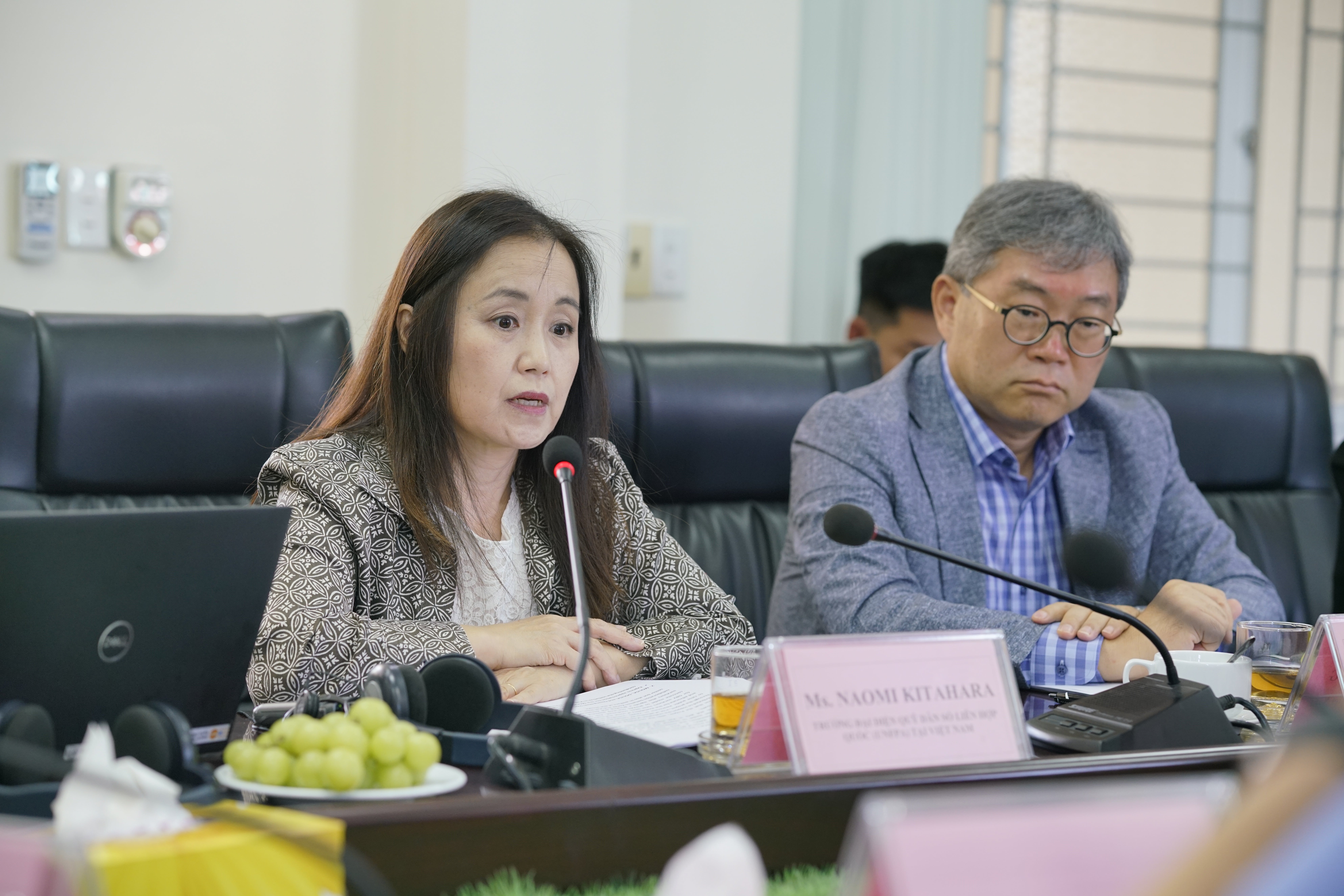
Despite many efforts, gender-based violence (GBV) is still a problem everywhere, every day including Viet Nam, and remains to be one of the most pervasive human rights violations in the world today. It is estimated that one in three women globally experience violence over their lifetimes. Now, the Covid-19 outbreak may be exacerbating the problem.
The national study on violence against women in 2019 showed that nearly two in three married women (almost 63 per cent) have experienced one or more forms of physical, sexual, emotional and economic violence and controlling behaviours by their husbands in their lifetime, and almost 32 per cent in the last 12 months. Violence against women remains very much hidden. Half of women who experienced violence by husbands had never told anyone. Almost all women (90.4 per cent) who experienced physical and/or sexual violence from husbands did not seek any help from formal service providers. Violence against women has serious consequences on economic development, as well as physical and mental health. It is costing Viet Nam’s national economy the equivalent of 1.8 per cent of GDP.
Data from Quang Ninh province shows that between 2016-2018, there were 555 cases of gender-based violence reported, and women victims constituted 81%. In particular, there were emotional violence (65.2%), physical violence (29%), sexual violence (2.3%), and economic violence (9.5%). The large majority (76.3%) of victims were in the age group 16-59 years.
In times of crisis such as the Covid-19 outbreak, women and girls may be at higher risk of intimate partner violence and other different forms of violence caused by other members of the family, due to confined environment at home for a prolonged period of time, restrictions of movement, and heightened stress and tensions in the household. Other forms of GBV may also permeate including sexual exploitation and abuse in these situations. In some countries, the number of women calling for help has doubled. In Viet Nam, GBV service providers have also observed increases of calls over the past months.
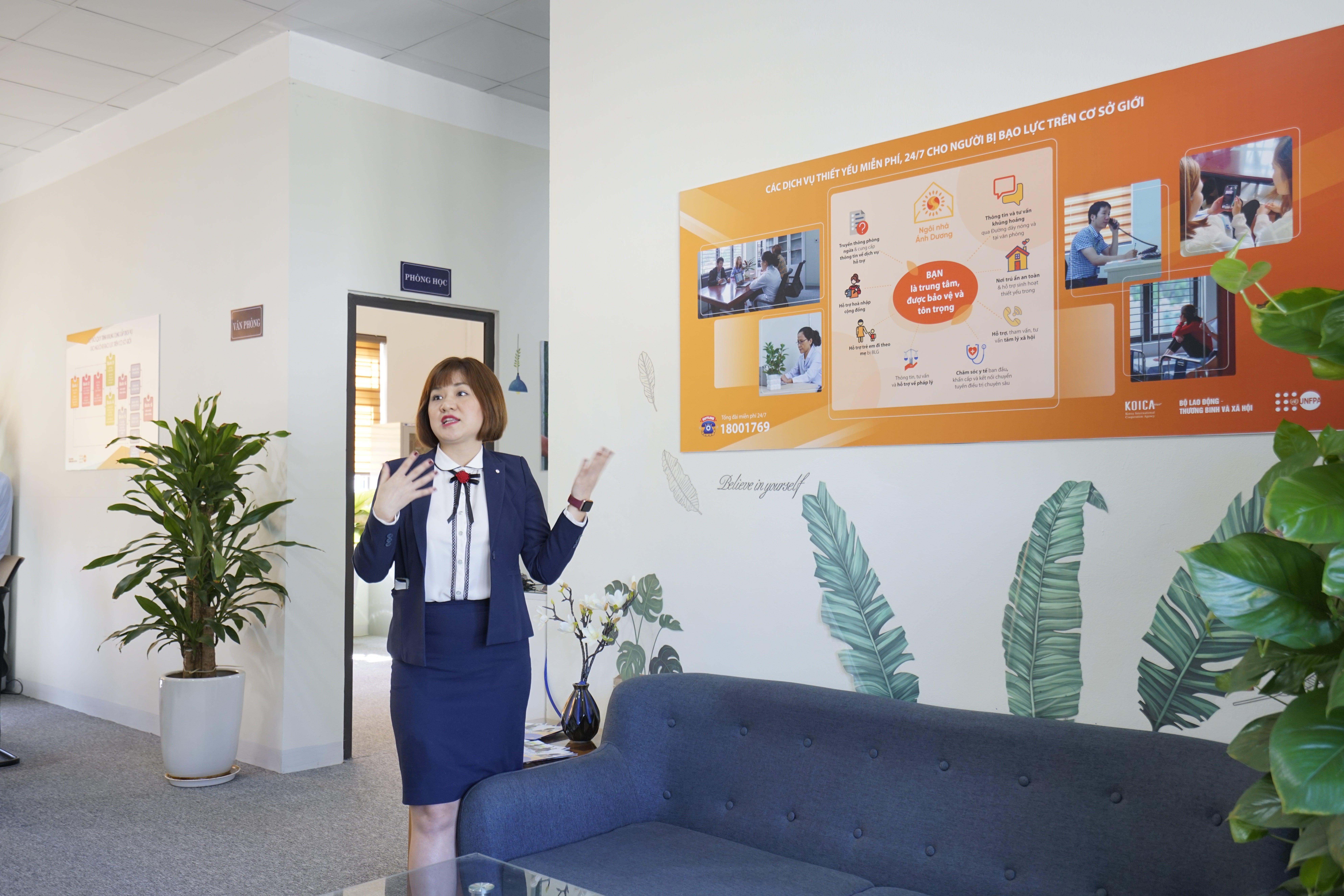
“We believe that every woman and girl has the right to live in a Gender-Based Violence free environment. The project’s activities including the establishment of one coordination mechanism to facilitate inter-institutional support essential services will bring about efficient, professional, gender-sensitive and tailored assistance to GBV victims,” said Mr. Cho Han-Deog, Country Director of KOICA Viet Nam Office.
“UNFPA is committed to continuing our support to the Government of Viet Nam and other partners to end gender-based violence and achieve gender equality in Viet Nam. I call on everyone to join forces to make sure that women and girls can live a life free of violence, have equal access to opportunities and resources, exercise their leadership, and participate fully in the country’s process to achieve Sustainable Development Goals. Together, we can work towards a world where both men and women, and boys and girls, can enjoy life with dignity,” said Ms. Naomi Kitahara, UNFPA Representative in Viet Nam.
The “Anh Duong” House Shelter has been managed by the Quang Ninh Provincial Social Work Centre, under Quang Ninh Provincial Department of Labour, Invalids and Social Affairs, with technical and financial supports from UNFPA and KOICA. The toll free hotline 1800 1769 is operational to receive information on incidents of GBV for urgent response and online counselling on matters of GBV.
